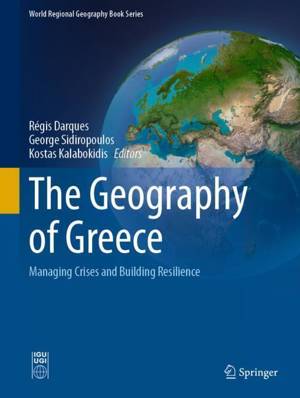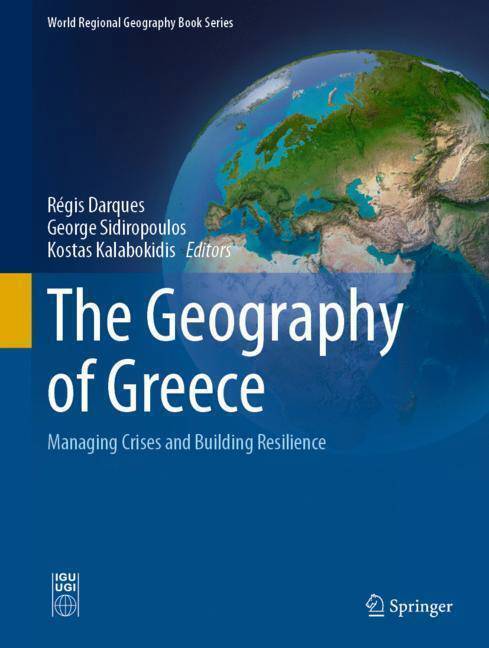
Bedankt voor het vertrouwen het afgelopen jaar! Om jou te bedanken bieden we GRATIS verzending (in België) aan op alles gedurende de hele maand januari.
- Afhalen na 1 uur in een winkel met voorraad
- In januari gratis thuislevering in België
- Ruim aanbod met 7 miljoen producten
Bedankt voor het vertrouwen het afgelopen jaar! Om jou te bedanken bieden we GRATIS verzending (in België) aan op alles gedurende de hele maand januari.
- Afhalen na 1 uur in een winkel met voorraad
- In januari gratis thuislevering in België
- Ruim aanbod met 7 miljoen producten
Zoeken
The Geography of Greece
Managing Crises and Building Resilience
€ 335,95
+ 671 punten
Omschrijving
During the last few years, Greece has become a subject of increasing attention worldwide. Once praised for its ability to innovate and reform during the EU integration process, applauded for its remarkable job in managing the 2004 Olympics, the country fell into a financial crisis of unprecedented magnitude in 2008. Much has been said on this matter, and amid the morass of information a staggering number of untruths have been disseminated.In fact, the challenges of vulnerability and the paradigms of adaptation go way beyond finance and economy in Greece. Mega-fires, earthquakes, landslides and floods, migrations, sociopolitical upheavals, and armed conflicts generate emergency situations repeatedly. Because of its bridging role between natural and social sciences, geography can provide insights into the entire breadth of hazardous and chaotic events driving adaptation and change. Against all these threats, Greece has developed an enhanced resilience capacity. The purpose of this book is to help unravel the complexities of a fascinating country beyond clichés.This book is intended for students, researchers, scholars, and engineers interested in geography, land planning, urban studies, and environmental management. The crises issue intended as a guideline allows widening the audience to include the media, governmental and non-governmental agencies, and the public at large.
Specificaties
Betrokkenen
- Uitgeverij:
Inhoud
- Aantal bladzijden:
- 532
- Taal:
- Engels
- Reeks:
Eigenschappen
- Productcode (EAN):
- 9783031298189
- Verschijningsdatum:
- 23/02/2024
- Uitvoering:
- Hardcover
- Formaat:
- Genaaid
- Afmetingen:
- 206 mm x 274 mm
- Gewicht:
- 1451 g

Alleen bij Standaard Boekhandel
+ 671 punten op je klantenkaart van Standaard Boekhandel
Beoordelingen
We publiceren alleen reviews die voldoen aan de voorwaarden voor reviews. Bekijk onze voorwaarden voor reviews.








